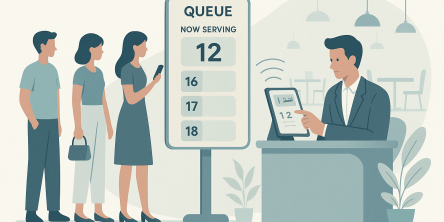Payment Gateway Provider: Key Factors to Keep in Mind

Businesses today are increasingly embracing modern technologies to ease customer journeys and deliver enhanced experiences. Modern technology with the introduction of payment gateway enables online businesses and e-commerce merchants to offer customers swift and secure digital transactions. As taking payments is core to the success of an e-commerce business; it is, therefore, vital that you partner with the right payment gateway provider. It is software that enables business owners to offer digital payment methods to their customers.
And, while setting up online payment methods for products and services, is no longer a challenge for eCommerce and online businesses, there are certain factors to consider when choosing a payment gateway. Not only that, there’s an important consideration to address the technical and logistical challenges that come with setting up a new payment gateway.
Such gateways allow businesses to pay via digital wallets, bank transfers, debit cards, etc. Now as the popularity of these gateways grows, an increasing number of companies are looking to leverage these solutions for their businesses too. So, if you are one of them as well, here are some key factors to keep in mind.
1. Pick the right integration method: A critical part of ensuring successful payment gateway integration for your business is how you choose to integrate the solution. Out of the three available options, namely, hosted gateways, direct post method, and non-hosted, choose one that fits the bill for your business. Each one of these methods has its pros and cons; study them carefully and then decide which solution works best for you.
2. Make a list of features you need: If you are trying to find a solution that fits your business’ needs, it would be a good idea to make a list of features you need and expect from the solution. These features will be, of course, based on the reason why you want to integrate such a gateway, the role such a solution will play in your business, and your expectations from the gateway. Some of them go to features on your list should be ease of integration, mobile access, EMV credit card processing, etc.
3. High-security standards: No matter if you serve customers online or via brick and mortar stores, the fact remains that customers today want and expect top-notch security when it comes to making payments through digital means. So, make sure that the solution you pick integrates relevant security measures such as PCI-DSS.
4. Don’t forget to factor in the fees: Unlike what some people may think, using a payment gateway involves often complex pricing strategies. We say complex because the pricing will typically factor in considerations such as if the business involves online or offline transactions or perhaps a combination of both; frequency of transactions; etc.
5. Support: Customer support is not only important when you are serving customers, but also when your business is the customer. Hence, while choosing a modern payment solution to integrate with your business, we recommend you also take a close look at the support you receive with the product. Look for a gateway service that offers round-the-clock support to ensure your operations never get held up, especially at critical moments.
We understand that making any decisions about online payment gateway integration can be a tad challenging. Starting from deciding which product to use to how to integrate the solution with your business — they are all challenging decisions and yet remain consequential to the business’ seamless operations and success.
Hence, it is advisable that you take your time to research the available solutions in the market, what they have to offer, and how they help with your business’ requirements. For more assistance and to take things up a few notches, you can always engage the services of a trusted service provider for payments systems integration.
Similar Articles
Compare hydraulic and traction residential elevators to find the best fit for your home. Learn how each system works, their pros and cons, space needs, energy use, and maintenance requirements.
Extend the lifespan of your commercial marina docks with proactive maintenance. Learn essential inspection routines, material-specific care, and safety tips to protect your investment and ensure long-term dock performance.
Learn the key factors in designing an engineered fall protection system. Discover how hierarchy of controls, task analysis, structural integrity, and fall clearance ensure safety and compliance.
Today, modern businesses face constant pressure to operate with maximum efficiency. This requires a technology infrastructure that is both agile and robust. However, the traditional model of on-premises data centers often has significant limitations. These legacy systems can drain valuable resources from teams.
When people are hungry, standing in line for a table feels tiring and unpleasant. In fact, research shows that most individuals will just walk away if they have to wait longer. They will go and find another place to eat.
In the early stages of designing new community centers, fire stations and administration buildings, city planners and architects are forced to make a crucial decision: What building material is best suited for providing the most value, safety and longevity to the public?
Amazon Simple Queue Service (SQS), Simple Notification Service (SNS), and EventBridge are just a few of the messaging services that AWS provides to meet various demands when it comes to creating scalable and effective cloud systems.
Wearable technology, embracing devices small enough to be worn unobtrusively, constitutes a market that keeps expanding, and the momentum shows little sign of slowing
For job seekers, grasping the basic functions of Applicant Tracking Systems (ATS) is the first step in overcoming common job search barriers.









